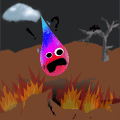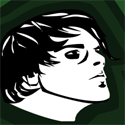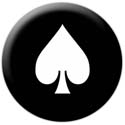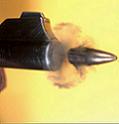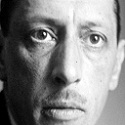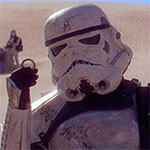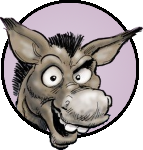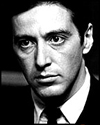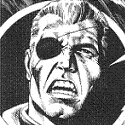|
Gishman posted:Detroit: An American Autopsy by Charlie LeDuff. I knew I was in trouble when the author put himself on the cover of a book about a city's downfall. So, not good then...? I recently finished The Unwinding and would recommend it to anyone looking for a well-written, super-depressing overview of how hosed the U.S. has become.
|
|
|
|

|
| # ? Apr 25, 2024 21:14 |
|
I just finished The Story of Philosophy by Will Durant, which was a nice little tour of some major philosophers and thinkers throughout history. I did my undergrad in philosophy, so a lot of it was just a refresher on things I had already studied, but Durant is an engaging and very clear writer with a knack for breaking down complex ideas into digestible chunks, as well as explaining all the major objections to them afterwards. Not quite as thorough as Bertrand Russell's History of Western Philosophy, but also a bit less complicated than some of Russell's connections-to-connections-to-connections can be, because Durant is treating mostly on individuals, rather than concentrating on schools of thought and their development into one another. A very good introduction to western philosophy. Both are, really. And on that note, does anyone know if a comparable book exists for eastern philosophy? I've read Confucius, Buddha, and Lao Tzu, and then my reading jumped to Mao, D.T. Suzuki, and Alan Watts, and I'm sure there's more philosophers and thinkers I ought to know of in the intervening 3000 or so years.
|
|
|
|
I recently read The House of Morgan by Ron Chernow, a good book at not only the Morgan family but also the associated banks: Morgan Stanley, Morgan Grenfell and J.P. Morgan and Company from the founding of George Peabody & Company to J.P. Morgan & Company leaving 23 Wall Street in 1989. Chernow not only does a good job of explaining how the banks worked, he also explained financial events and laws clearly, like the Glass-Steagall Act, the Panic of 1893 and the Gold Standard. The books biggest issue is that it has many moving parts, particularly in later chapters, that it can sometimes lose focus. Overall though it is a very good history of the financial system and the Morgan banks.
|
|
|
|
Burning Rain posted:Ben Goldacre - Bad Science. I'm translating the book at the moment, but I can't say I was too impressed with it. The author seems way too eager to go on frothing rants about some particular people and 'destroy' them so thoroughly it seems quite pointless, especially for readers outside the UK. Yeah, I guess you're right. Ben is a friend of my center chief in Oxford and I've heard him live on a Evidence Live! conference. He's one of the young stars in the evidence-based medicine milieu in England, and being an EBM disciple I really, really want to like his books. I'm giving Bad Pharma a chance soon, and can recommend his TED talk as well as his weekly column in the Guardian. His twitter account is just manic rants. What are you translating him into?
|
|
|
|
rasser posted:Yeah, I guess you're right. Ben is a friend of my center chief in Oxford and I've heard him live on a Evidence Live! conference. He's one of the young stars in the evidence-based medicine milieu in England, and being an EBM disciple I really, really want to like his books. I'm giving Bad Pharma a chance soon, and can recommend his TED talk as well as his weekly column in the Guardian. His twitter account is just manic rants. I'm translating him to Latvian. EBM is important, and the book touches some very important subjects that I think aren't being discussed nearly enough in Latvia, which is why I'm a bit pissed about him fighting drawn-out battles with people who don't really deserve that much attention. It is all connected with his wider points, but sometimes Ben just seems to get lost in dismantling some guy's position stone by stone. Oh well, I suggested the translation myself anyway, and it will be a much needed change from all the self-help and 'quantum healing' bullshit that's flooding the market. I'm interested in hearing about Bad Pharma, too!
|
|
|
|
Spoilers Below posted:And on that note, does anyone know if a comparable book exists for eastern philosophy? I've read Confucius, Buddha, and Lao Tzu, and then my reading jumped to Mao, D.T. Suzuki, and Alan Watts, and I'm sure there's more philosophers and thinkers I ought to know of in the intervening 3000 or so years. Its out of print so you'll have to buy a used copy but Great Thinkers of the Eastern World edited by Ian P. McGreal is good for this (there is a listing up for a $0.01 copy). The book is subdivided by countries: China, India, Japan, Korea and the world of Islam. Each personality, presented chronologically, gets about 4-5 pages briefly breaking down the philosophers' major works and chief ideas. ~500 pages. I haven't read it cover to cover but its an incredibly useful book. Yiggy fucked around with this message at 05:17 on Apr 8, 2014 |
|
|
|
In terms of recent reads, When the Air Hits Your Brain: Tales of Neurosurgery is an excellent look into the people and personalities who get into the field. It's presented as a series of explorations of patients through the author's medical career and can be very formulaic, but his accounts are gripping and I'm a shameless whore for excellent medical non-fiction. It's similar to some of Atul Gawande's work, so if you enjoy his style I'd definitely recommend it. The Psychopath Test: A Journey Through the Madness Industry is a short easy read which delves into how we deal with madness. Ronson's style is either to your tastes or is isn't, and it's a shame he focuses more on his 'crazy' adventures then looking deeply into psychopathy.
|
|
|
|
Mecca-Benghazi posted:I'm currently going through an anthology, Who Should Be First? Feminists Speak Out on the 2008 Presidential Campaign. It's about the intersection of race and gender during the Democratic primary and Obama's election. I'm familiar with many of the arguments made so I'm treating it as a tine capsule and a rough way to see how attitudes towards them both changed over the course of the primary. I also finished Native American Religious Identity: Unforgotten Gods edited by Jace Weaver, another anthology about the intersection of traditional Amerindian beliefs and Christianity. I liked it, although if you're not too familiar with native issues it might take a while to ease into it. Also, man, as an author Andrea Smith really gets around; she was in both of the anthologies I read. It makes sense if you're looking for a famous native feminist she's definitely top three, but still. My next non-fiction book after I finish my current stuff is A Fish Caught in Time: The Search of the Coelacanth because I've had it for ages just collecting dust. 
|
|
|
|
I like Jon Ronson's work. I haven't read the psychopath test but I did read Men Who Stare at Goats and if it wasn't for various armies having histories of this kind of lunacy I would have sworn it was all completely made up.
|
|
|
|
Going to revive this thread to ask if anyone knows any good reading on Acupuncture? I'm thinking I'd like to delve into bullshit healing subjects, now that it's a few months after the James Randi book Faith Healers I posted about on the previous page, and currently reading up on Chiropractic in a book titled Spin Doctors: The Chiropractic Industry Under Examination. I'm willing to take suggestions on other bullshit healing practices also or any book that can sum up a bunch of them so I'm at least more aware.
|
|
|
Mecca-Benghazi posted:if you're looking for a famous native feminist she's definitely top three damning with faint praise 
|
|
|
|
|
Walh Hara posted:
As someone who has read and somewhat enjoyed three of Diamonds books (guns, collapse, yesterday), and you've described them all. They are interesting reads, but I don't really consider them serious scholarship. Gang Leader for a Day started off interesting, but got very samey towards the end and the pay off wasn't all that interesting. I'm reading Devil in the White City. It's ok, but I've been promised it will pick up soon, which I think is funny since the fair just ended... Will check back when I'm done.
|
|
|
|
I've been reading a lot of books on political philosophy recently as research for my ongoing dissertation. A lot of it was re-reading stuff I've read before (the "usual suspects", one's tempted to say: A Theory of Justice, Taking Rights Seriously, Capitalism, Socialism and Democracy), but I've also read for the first time A Preface to Democratic Theory by Robert Dahl, which I found quite interesting.
|
|
|
|
I'm in the middle of lost and found: stories from New York which is edited by Thomas beller. It's pretty good so far. I don't think that most of the stories are real, but then again, who knows. Up next is Going Clear which is all about scientology.
|
|
|
|
I read aloud Theory of the Leisure Class on a trip to and back from Florida which was a really weird but I enjoyed the book. I also got some peaches and oranges on the way.
|
|
|
|
I am currently in the middle of Black Lamb and Grey Falcon by Rebecca West which is a rather massive travel book written by a Briton travelling as a tourist through Croatia, Bosnia, Montenegro, and Serbia in 1937. Since she is a well off and somewhat well known figure she has friends who are professors, poets, and so forth scattered throughout the Balkans to greet her wherever she stops and engage in lengthy discussions of the local history, culture, ethnic tensions, and so on.. and though all of these people are friends with the author, they often dislike one another for those same reasons which leads to some interesting conversations and shifts in perspective about whatever piece of local history is being discussed at the moment. The most interesting thing about the book, of course, is that it's from 1937 - only four years before the German invasion of Yugoslavia, but of course no one in the book is aware of this. There is quite a lot of political tension of course, much left over from WW1, but by and large it's life as usual in Yugoslavia which means that many areas are full of German tourists, whom West sometimes interacts with and attempts to describe their outlook. By this time Hitler had been in power for some years and Mussolini even longer and tensions were quite high, and everyone - the author included - is completely obsessed with race, but much of this is more in the background than the foreground. I can't say I've ever read anything quite like it, it's great not only because West herself is a very entertaining writer and imparts a huge amount of knowledge but also because the book itself is a unique artifact from a time and place where everyone was teetering on the brink of destruction and chaos, with little conscious idea it was coming but with all of the signs right there. Earwicker fucked around with this message at 14:23 on Jun 27, 2014 |
|
|
|
a friendly penguin posted:Moby Duck by Donovan Hohn. I got 80 or 90 pages into this and stalled out on it. I may try Flotsametrics by Curtis Ebbesmeyer (the dude from Moby Duck). I read a review of the second volume of Sylvia Morris' biography of Clare Booth Luce that intrigued me, I'm going to see if library or book stores here have a copy of the first volume.
|
|
|
|
I recently read "Maximum Willpower" by Kelly McGonigal. It looks like the typical self-help rubbish, but it is full of good scientific insights about how people fall into bad habits and can learn good new habits. Also in the field of psychology - "The Lucifer Effect" is a fascinating look at the famous Stanford Prison experiment with context from Abu Ghraib and Guantanamo Bay dealing with the forces that can make otherwise "good" people do the most appalling things.
|
|
|
Mecca-Benghazi posted:My next non-fiction book after I finish my current stuff is A Fish Caught in Time: The Search of the Coelacanth because I've had it for ages just collecting dust. Might you have finished this yet? I have Keith Thompson's book on the coelacanth Living Fossil and was wondering about that one you mentioned
|
|
|
|
|
1776. I knew little about the revolutionary war i had to do it. Good evenhanded presentation on brittish and revolutionary forces. Washington wasn't a good tactiction. Everyone in 1776 is infected with a virus with unending hyporbolie on any subject. Everything is the greatest/worst thing to happen to mankind.
|
|
|
|
Bilirubin posted:Might you have finished this yet? I have Keith Thompson's book on the coelacanth Living Fossil and was wondering about that one you mentioned It was a good book, but it's not really about the coelacanth but the people who 'discovered' it and such. If you have the time, I wouldn't say don't read it, but it won't blow your mind if you're already reading other books about coelacanths.  Then again, I'm no ichthyologist. Then again, I'm no ichthyologist.
|
|
|
|
To answer the OP: A lot of depressing books about war and history. But I don't want to make you weep with sordid tales of how cruel humanity can be, so I read some lighter books as well. For people who like to read about smart animals, I can recommend Mind of the Raven by ornithologist Bernd Heinrich. It's a nice book about his raven-research. Fun fact: Ravens are actually smarter than dolphins. Also to help people differentiate between crows and ravens: Ravens are the loving huge monstrous ones, crows the scrawny small ones. And for those interested in more technical stuff, Soviet Robots in the Solar System by Wesley T. Huntress, Jr. and Mikhail Ya. Marov is loving great: It describes in great detail the Soviet expeditions to Moon, Mars and Venus. Lots of photos, diagrams, tables and much more! Then there is the book Cobol Programming I'm reading right now. It's a small, thin book by Brophy and 39 years old. I'm reading it because of all the neat descriptions of how ancient computers worked. The very idea of giving your program to some office just to come back a few days later to collect your error messages sounds just so awkward and old-fashioned. The book is a jewel for people who want to know about how things were done back in the 70s.
|
|
|
|
hcenvirons posted:
Reading this now. It's very slow. Lot of names to keep track of and Slavic names are not easy. It's better now that I've gotten in to the politics of other European countries. Also reading The Rock Warrior Way about tackling fear and being mentally prepared for climbing.
|
|
|
|
I'm currently reading The Angry Brigade a history of Britain's first urban guerilla group* by Gordon Carr. It's an account of the rise and fall of a group that became known as the Angry Brigade and there non-violent bombing campaign in the early 1970's. And the extremely controversial police operation and trial against its alleged members. It doesn't offer any conclusions either way but does document both the police and the defendants claims and counter claims and substantiates some allegations from both sides when the evidence seems overwhelming. It also goes to great lengths to explain the political outlook of the Angry Brigade and those accused of being members by the police, which is quite an undertaking since it means explaining the rise of the New Left and the turmoil of Western Europe from 1968, including the ideas of the Situatuionists a group famous for impenetrable manifesto's. One problem is that parts of the book that deal with the nitty gritty of police procedure can be very tedious, and its inability to answer the question of `Who's really telling the truth here?` can be quite frustrating, but its well worth a read if you're interested in the radicalism of the 70's. *I guess the IRA, UDA, UVF etc. don't count.
|
|
|
|
Just read The Looming Tower by Lawrence Wright, a very well researched book on the beginnings of modern terrorism, up until 9/11 and its immediate aftermath. Which segues very nicely into... Days of Fire by Peter Baker, a summary of the George W Bush administration. Also on deck is Nixonland, Before the Storm, and The Invisible Bridge, three books by Rick Perlstein ostensibly about the 1964, 1968-72, and 1980 elections, but mostly about the moods and culture of the American people at those times. Lawrence Wright also recently published a book about scientology called 'Going Clear' which was turned into a documentary and shown at Sundance. The book (and movie) is supposed to be great.
|
|
|
|
I finished Hiroshima by John Hersey. I saw a recommendation for it by another goon in another thread. The book is an account of six survivors of the destruction of Hiroshima detailing how they dealt with the aftermath, including a German Catholic priest, a mother and her three young children, a Doctor the only Dr at the Red Cross hospital to survive uninjured -not including radiation sickness- and had to treat tens of thousands of patients with the surviving medical team before relief arrived, and a woman who worked in a tin works whom was shuttled from relief stations and hospitals while her leg injury deteriorated. As you can imagine its pretty bleak, the account graphically describes the horrors and covers everyone of the results of the atomic bombing from flash burns to freak weather conditions. The last chapter covered the survivors lives after the bombing, how they coped and what was the bombs enduring legacy. It was packed with very surprising details about post war Japan. And its a slim read just under 200 hundred pages.
|
|
|
|
The only biography I've read was of Arnold Schwarzenegger, he pretty much thought "I want to be successful at X" and worked hard to make it happen multiple times. I don't read many non-fiction but the ones that stick to mind are: Into Thin Air by Jon Krakauer which tells his personal experience during the 1996 Mount Everest disaster, the deadliest day on Everest until 2014. I quite enjoyed this and tried to read a similar book about a disaster on K2 but I didn't finish it. Though the latter had some pretty horrific example of what lack of oxygen does to you, as the writer witnessed some guy slide down the mountainside without even trying to slow down right off a cliff and into his death, without a making a noise. Escape from Camp 14, written based on interviews with a North Korean man who is "the only known prisoner to have successfully escaped from a "total-control zone" grade internment camp in North Korea." It was very interesting and exiting to read about what life was like in the camp and how things pretty much every human takes for granted were new for him after he escaped. I think he said it was hard for him to feel "emotion" after escaping, since at the camp things like seeing your family members executed didn't do anything for him since that was an every day occurrence.
|
|
|
|
Going Clear, which has been discussed a bit, is incredible. One of the most fascinating stories I have ever read.
|
|
|
|
blue squares posted:Going Clear, which has been discussed a bit, is incredible. One of the most fascinating stories I have ever read. I read this recently and had to know more about another cult mentioned, Aum Supreme Truth. So I then read The Cult at the End of the World by David E. Kaplan & Andrew Marshall. Aum are the Japanese cult who launched the sarin attacks on the Tokyo subways in the nineties. It's hard to believe a lot of what they did, why members stayed and how they got away with it for so long. They go off the deep end when they murder a lawyer and his wife and infant son for investigating them for accepting underage members. They then launch numerous botched bioweapon attacks against critics and built bioweapon and munition factories at the base of Mount Fuji. Really interesting read. Koburn fucked around with this message at 01:04 on Mar 9, 2015 |
|
|
|
I've been reading Godel Escher Bach it's proper good.
|
|
|
|
I've recently finished The Translator by Daoud Hari, a Zahgawan tribesmen from Darfur. Its a memoir about the escalation of the conflict in Western Sudan and its very bloody toll. Daoud's village was attacked and many of his friends and family were killed with the rest fleeing. After the attack Daoud who could speak Zahgawan, Arabic and English became a translator working for aid agencies and media teams to raise awareness of the atrocities being committed in his homeland. Its a very bleak book with an atrocity or a gross injustice in every chapter, even before the war broke out. But despite all that he witnessed Daoud never gave into despair or mindless loathing, he maintains a sort of positive tone and can find bright spots in even the darkest encounters. In addition to a rather personal story the Daoud takes time to explain life in Sudan from remote tribal villages in the Wadi's to the cities, gives some background on the conflict and Sudan's political turmoil and advocates strongly for peaceful brotherhood. A very interesting read and an excellent guide to a part of the world little understood. Baka-nin fucked around with this message at 19:55 on May 14, 2015 |
|
|
|
I have just read Voices from Chernobyl: The Oral History of a Nuclear Disaster by Svetlana Alexievich, a book of interviews with people from Belarus who were effected by Chernobyl. The range of voices she portrays is pretty large, she talks with old returnees, regular people, high ranking scientists who worked at nuclear testing facilities, local party members and so on. I recommend it very much, it's a great if harrowing book. Also, I enjoy the format of interview books a lot in general. Over the years I've read Vremia sekond hend (Second-hand Time, I think no English translation exists but there is a German one) by the same author about the collapse of the USSR, The Corpse Walker: Real Life Stories: China from the Bottom Up by Liao Yiwu where he interviews Chinese people on the low end of the social ladder and Underground by Haruki Murakami about the Sarin attacks on the Tokyo subway. I found all of them excellent. For example Underground is my favourite Murakami and I was somewhat upset when I heard that they cut some interviews in the translated version. Now I am looking for more, any recommendations (it does not necessarily need to be about depressing things but good luck finding something that isn't)?
|
|
|
|
Neurosis posted:Just finished Francis Fukuyama's The Origins of Political Order. I like this quite a bit. It examines the core requirements for establishing political order (which Fukuyama sees as the rule of law, government accountability and a strong state). There's a couple of cool things going on here, as it examines China, India and the Islamic world in preference to a European focus. Fukuyama's a cheerleader for the West, so it shouldn't be a surprise he finds these models wanting, but the contrast is interesting. It's also cool because Fukuyama steps outside his ordinary discipline so you get some interesting infodumps on things like anthropology. He's an engaging writer and it moves along pretty fast. Highly recommended for anyone with a passing interest in geopolitics. He came in to do a talk at the company I work for awhile back and it was a really popular event, totally going to borrow this book from the work library. 
|
|
|
|
true.spoon posted:I have just read Voices from Chernobyl: The Oral History of a Nuclear Disaster by Svetlana Alexievich, a book of interviews with people from Belarus who were effected by Chernobyl. The range of voices she portrays is pretty large, she talks with old returnees, regular people, high ranking scientists who worked at nuclear testing facilities, local party members and so on. I recommend it very much, it's a great if harrowing book. Those all sound pretty interesting, even the Haruki one and I'm usually put off by him, I'll keep an eye out for them, thanks. I recently finished Resistance: A Memoir of occupied France, by Agnes Humbert. Resistance is one of those texts that has dozens of admirers and references to how important and great it is, and yet went out of print decades ago (around 1946). It was only translated into English in 2008 a few years after being reissued in France. Its an account of one of the earliest French resistance cells, a group of Parisian intellectuals whom carry out acts of annoyance like publish Gaulist pamphlets and anti Vichy stickers, but they soon networked with other groups and began more serious work, publishing a newspaper -also called Resistance- helping smuggle RAF airmen out of France, and getting in touch with disaffected French officers whom gave them information and maps of German bases and activities that they passed on to British Intelligence. However having no previous experience of espionage they were quite amateurish, so much so that the first part of the memoir is Agnes's actually diary that contains day to day accounts of the groups activities for example: Paris, 15 November 1940 Lat week Boris Vilde appeared in my office, a worried man; he has been expecting two British airmen to arrive any day, and now all of a sudden he's been told to expect five. So it not surprising that most of the group including Agnes were eventually caught, the rest of the memoir concerns her time in prison (in France) her groups trial, her processing in various German labour camps, and finally her role in liberated Germany after being freed from the camps. In addition to the vast wealth of knowledge about life in this period in both France and Germany, Agnes maintains an irreverent almost comedic tone that kept me wanting to read more. Sadly given the nature of events covered there are many scenes of shocking brutality and incompetence, and not all of them by Germans. Indeed Agnes stressed in her accounts that many Germans found themselves victims of the Nazi regime and that France had contained a willing audience for Petain's collaboration.
|
|
|
|
I just finished reading the Biography of William Fredrick Cody (AKA Buffalo Bill) and it was fascinating. Although at times you wonder if he embellished his achievements to some degree. If follows his life from early childhood in bleeding Kansas up to his Wild West show. Certainly a fun read and its free. I would recommend it to anyone interested in the wild west or post civil war westward expansion.
|
|
|
|
I've spent today reading First as Tragedy Then As Farce by noted terrible cinema forum poster Slavoj Zizek and it's actually really good but what are more good things that are similar preferably of a similar ;evel of accessibiloty but I will read more difficult stuff if you say it is good.
|
|
|
|
CestMoi posted:I've spent today reading First as Tragedy Then As Farce by noted terrible cinema forum poster Slavoj Zizek and it's actually really good but what are more good things that are similar preferably of a similar ;evel of accessibiloty but I will read more difficult stuff if you say it is good. If you'd like more Zizek an interesting and accessible read is his correspondence with Nadezhda Tolokonnikova a member of Pussy Riot while she's in a labour camp after being sentenced for their performance in an Orthodox church. Having to tailor his words as a response to another human being helps prevent him from devolving into more philosophical navel gazing. And reveals the very interesting and very sad state of the Russian prison system. Its called Comradely Greetings: The Prison Letters of Nadya and Slavoj
|
|
|
|
Any good non fiction reccomendations for works about police officers?
|
|
|
|
Abu Dave posted:Any good non fiction reccomendations for works about police officers? I definitely recommend Cops by Mark Baker which is simply a collection of anonymous stories of life on the job from cops all over the US, mostly from the 1970's. Since it's all anonymous there's no telling how true it is really, but it's a rather frightening book if even half of that poo poo is real (which I suspect it is). It's a good read either way. On a different note I've also read No Angel which is the story of an ATF officer who was supposedly the first law enforcement officer to successfully infiltrate an outlaw biker gang, focusing primarily on the Hells Angels. Fairly interesting but again, not exactly easy to tell just how non-fiction it really is. Story follows the general "going too deep undercover" arc that you see in a lot of crime fiction.. which doesn't in and of itself mean anything but also the whole thing has a sort of Elmore Leonard vibe, so I wouldn't take it as an ultra realistic portrayal of the situation or anything (and of course several of the bikers have since claimed that they knew the dude was a cop the whole time etc.) Earwicker fucked around with this message at 02:02 on Jul 7, 2015 |
|
|
|

|
| # ? Apr 25, 2024 21:14 |
|
Cool thanks for the reccomendations on both. 
|
|
|









